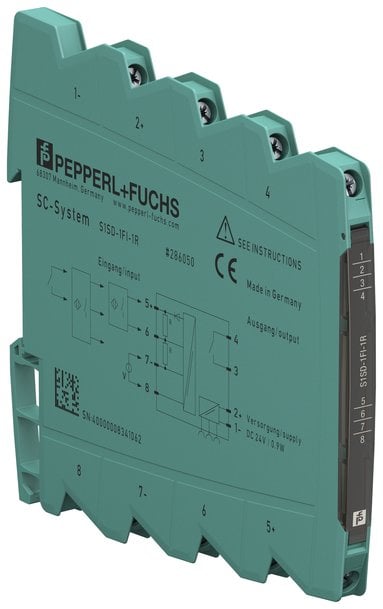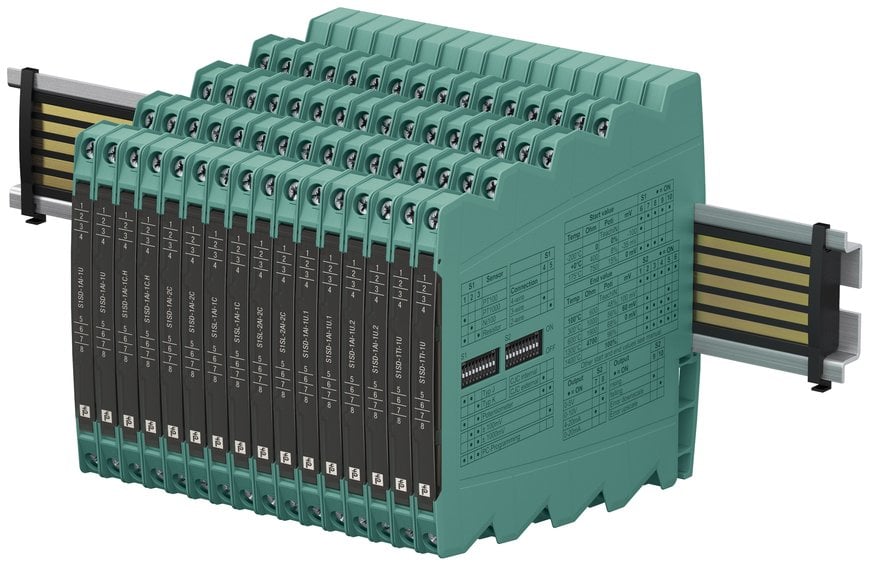www.industryemea.com
17
'19
Written on Modified on
Rotation speed monitor in the 6 mm enclosure design now with restart inhibit
The SC-System's family of signal conditioners by Pepperl+Fuchs can now be used even more comprehensively: the single rotation speed monitor with just a 6 mm installation width processes digital input signals of all binary sensors currently on the market and is now fitted with a restart inhibit. This feature enables the module to have to be activated via a reset input after limit values have been exceeded for a short period of time so that possible faults are found and rectified before restarting.

The design of the rotation speed monitor meets the philosophy that all signals of a signal type currently on the market may be processed with just one module. Signals from NAMUR and SN sensors including line fault detection and short-circuit detection, as well as the measurement data from the 2-wire DC sensors may be processed in accordance with EN 60947-5-2. Signals can be transferred safely in the control level from S0 sensors for measuring the water volume and from 3-wire sensors with PNP or NPN switching outputs. With its S0 interface the rotation speed monitor is also of interest for areas outside industrial automation, such as building automation. The module can safely detect any signal up to 30 V with an input frequency up to 50 kHz. The device is set using a DIP switch or PC software. A start-up override is available to restart the system when standstill monitoring.
The SC-System from Pepperl+Fuchs includes a wide portfolio of signal conditioners for nonhazardous areas. With its space-saving enclosure design that is 6 mm wide and 97 mm high the modules are among the most compact on the market. They can be used at ambient temperatures of up to 70°C. The signal isolators are characterized by 3-way isolation withstanding a working voltage up to 300 V and a test voltage up to 3 KV. Optionally, they are supplied by terminals or a power bus.


